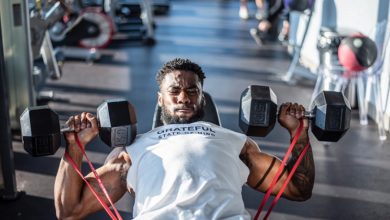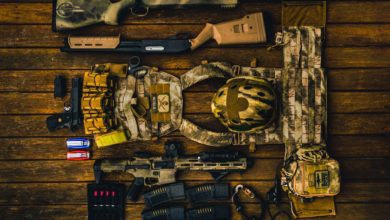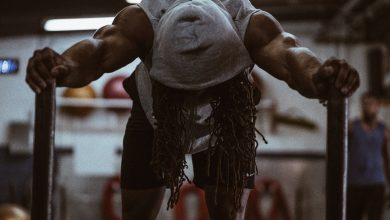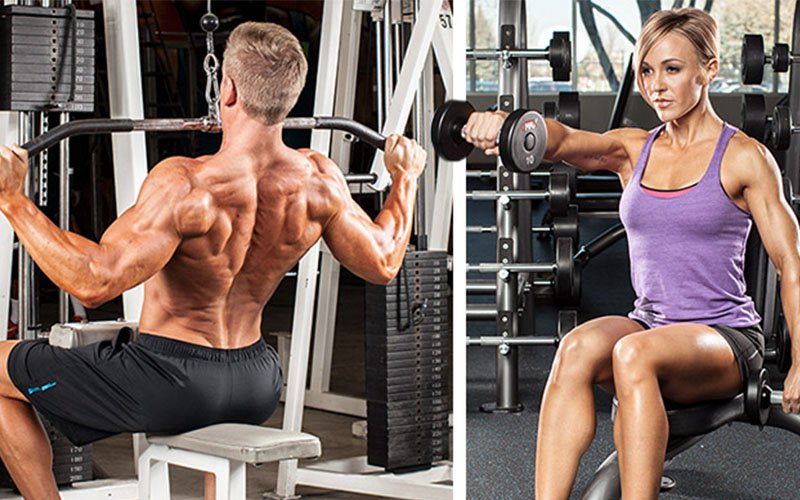
You’ve made the big decision to start lifting weights — congratulations! Joining a gym is never an easy choice to make at first, but if you keep going and push through, you’ll look back one year from now and think “how was I ever so scared?”
Very few people like change, let alone embrace it. But it is when we’re taken out of our comfort zones that we are forced to grow, change, and adapt.
This 8-week beginner workout program won’t take you so far out of your comfort zone that it ends up breaking you, but it will force your body to grow and adapt. That’s exactly what you want.
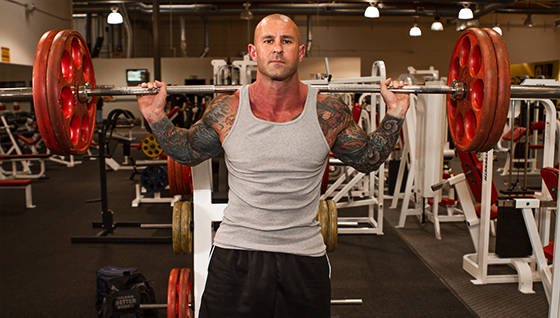
Without those factors present, your physique will remain unchallenged, and ultimately, the same. You don’t want that.
You don’t want to be that guy who goes to gym for years on end doing the same workout, same reps, same sets, and rocking the same body as when you first stepped inside the gym.
On that note, let’s talk a bit more about the 8-week beginner workout and what you should keep in mind.
1. Workouts Will Be Split
For the first 4 weeks of this 8-week workout program, you will follow a 2-day split — work out for 2 days followed by a day of rest, and then rest on weekends. By following this split, you’ll provide your body with adequate rest, allowing it to recover from the workouts.
From week 5 onward, you will work out for 3 consecutive days followed by a rest day and then work out for another 2 days, totaling at 5 workouts a week.
2. Add Little Weight Increments
This is one of the biggest mistakes that gym novices make — they add too much weight, too soon. Adding too much weight to what you can lift before your muscles have had enough time to develop and grow stronger, will only increase the risk for injury.
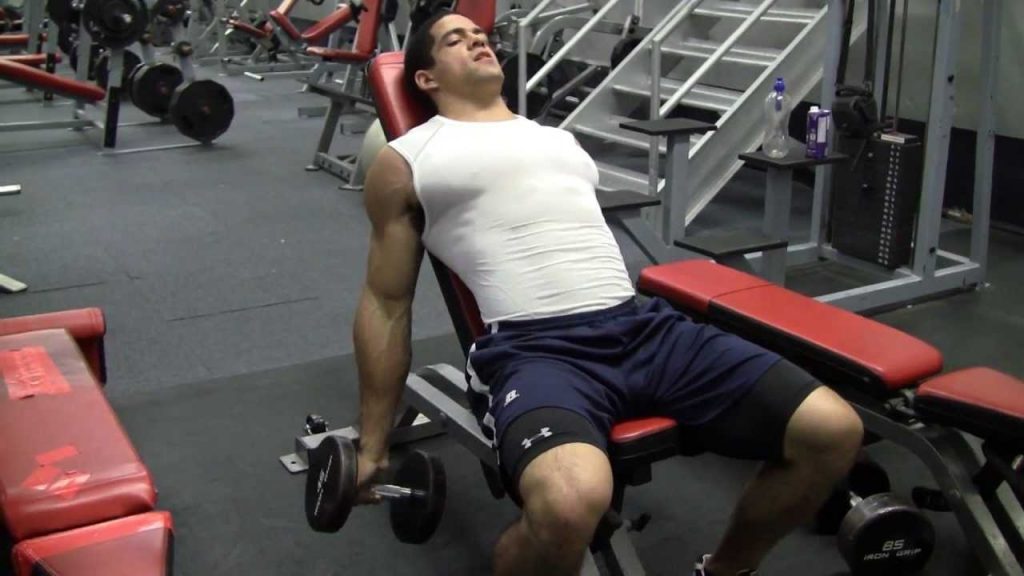
Making small weight increments to your big lifts (or even isolation movements) will allow your body to grow and adapt to progressive overload. This is one of the most basic ways to grow stronger and bigger.
3. Practice Your Form
Piggy-backing off of what was last said, training with shoddy form is just as big a risk for injury as training too heavy is, let alone doing both at the same time.
You’ve heard the saying, “practice makes perfect.” Well, it’s true.
If you practice your form with lighter weight, you’ll be able to execute near-perfect form with the heavier weights. Also, training with bad form will not only increase your risk for injury, but you won’t get the most out of the muscle group that you’re training.
That’s why the first 4 weeks of this beginner workout program should be focused on executing your movements with great form. That doesn’t mean that you’ll only be training with light weights, it just means that there will be a special emphasis placed on your form.
4. You Will Train to Fail
That sounds scarier than it is. Basically, what I want you to do is to learn how to train to failure.
Though the first 4 weeks of this program will place more emphasis on training with the correct form, the last 4 weeks will be a test of your will.
During the last 4 weeks, you’ll have to push yourself both mentally and physically to train to failure. However, training to failure doesn’t mean that you train until you can’t train anymore. It simply means that you should use a weight that would allow you to fail at an X number of reps.
For example, if I said that you should do 10 reps to failure, that means that you should choose a weight that would fail you on the 10th rep and that performing the 11th rep would be impossible.
5. Keep the Rest to A Minimum
When training for a physique change, the rest that you take in between sets is extremely important. It’s recommended to rest 1-2 minutes between sets. Unless you’re training for strength, resting for longer than 2 minutes will deter your gains.
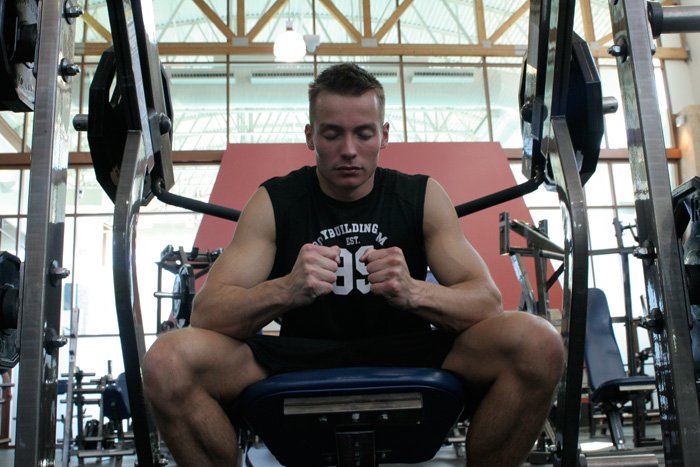
For muscle-building, you want to rest just long enough to allow your body to get rid of metabolic waste in the bloodstream and to, of course, allow you to catch your breath for the next set.
However, muscle groups differ in size, therefore, for smaller muscle groups, resting closer to the minute mark is advised. Training muscle groups like the legs or back require more rest, and therefore resting up to 2 minutes would be enough.
Though, I like to start my next set whenever I’ve caught my breath, even if that means resting for 30 seconds.
6. Change = Growth
If you want your body to keep growing, you need to keep forcing it to adapt. One way of doing that is by overloading the muscle. Another way of doing it is by changing the routine.
Remember what I said about being the guy who does the same thing and looks the same for the last couple of years? You don’t want to be that guy. And by changing your routine; exercises, reps, sets, intensity principles, etc. are what will help your body to change.
The 8-Week Beginner Workout Program
Phase 1: Weeks 1-4
Key Points:
- Train 2 days on, 1 day off. Rest weekends.
- Rest 1-2 minutes between sets.
- Emphasize on form over weight.
- Warm-up sets are not included. Perform 2-3 warm-up sets.
- Increase weight by 2-5 pounds each week.
- Perform workouts as upper body day, lower body day, etc. Never perform two consecutive upper or lower body workouts.
Workout 1: Upper Body
Flat Bench Press — 3 sets, 8-12 reps
Incline DB Press — 3 sets, 8-12 reps
Flat Bench DB Flyes — 3 sets, 10-15 reps
Seated Overhead DB Press — 3 sets, 8-12 reps
Upright Row — 3 sets, 12-15 reps
Side Lateral Raises — 3 sets, 15 reps
Workout 2: Lower Body
Barbell Squats — 3 sets, 8-12 reps
Leg Press — 3 sets, 10 reps
Hack Squat — 3 sets, 12-15 reps
Leg Extensions — 3 sets, 12-15 reps
Planking — 3 sets, 30 seconds
Workout 3: Upper Body
Bent-over Barbell Row — 3 sets, 8-12 reps
Pulldowns — 3 sets, 8-12 reps
Seated Cable Row — 3 sets, 10-12 reps
Barbell Curl — 3 sets, 10-15 reps
Concentration Curl — 3 sets, 12-15 reps
Close-grip Bench Press — 3 sets, 8-12 reps
Rope Pressdowns — 3 sets, 12-15 reps
Workout 4: Lower Body
Stiff-leg Deadlift — 3 sets, 8-12 reps
Lying Leg Curls — 3 sets, 12-15 reps
Seated Leg Curls — 3 sets, 12-15 reps
Standing Calf Raises — 3 sets, 15-20 reps
Donkey/Seated Calf Raises — 3 sets, 15-20 reps
Planking — 3 sets, 30 seconds

Phase 2: Weeks 5-8
Key Points:
- Train 3 days on, 1 day off, 2 days on. You’ll be training for a total of 5 days a week, which could be Sun, Mon, Tues, Wed (Rest), Thurs, Fri, Sat (Rest).
- Rest 1-2 minutes between sets.
- Keep form in mind, but train to failure on two isolation exercises per workout.
- Warm-up sets are not included. Perform 2-3 warm-up sets.
- Keep increasing the weight by 2-5 pounds each week.
- Keep performing the workouts as upper body day, lower body day, etc. Never perform two consecutive upper or lower body workouts.
Workout 1: Upper Body
Flat Bench DB Press — 3 sets, 8-12 reps
Incline Barbell Press — 3 sets, 8-12 reps
Incline DB Flyes — 3 sets, 10-15 reps
Bent-over Barbell Row — 3 sets, 8-12 reps
Pullups — 3 sets, 8-12 reps
Seated Cable Row — 3 sets, 10-12 reps
Workout 2: Lower Body
Barbell Squats — 3 sets, 8-12 reps
Leg Press — 3 sets, 10 reps
Stiff-leg Deadlift — 3 sets, 8-12 reps
Lying Leg Curls — 3 sets, 12-15 reps
Seated Leg Curls — 3 sets, 12-15 reps
Planking — 3 sets, 45 seconds
Workout 3: Upper Body
Seated Overhead Barbell Press — 3 sets, 8-12 reps
Upright Row — 3 sets, 12-15 reps
Front DB Raises — 3 sets, 15 reps
DB Curl — 3 sets, 10-15 reps
Hammer Curl — 3 sets, 12-15 reps
Bench Dips — 3 sets, 8-12 reps
DB Skull Crushers — 3 sets, 12-15 reps
Workout 4: Lower Body
Hack Squat — 3 sets, 12-15 reps
Lunges — 3 sets, 12 reps per foot
Leg Extensions — 3 sets, 12-15 reps
Standing Calf Raises — 3 sets, 15-20 reps
Donkey Calf Raises — 3 sets, 15-20 reps
Seated Calf Raises — 3 sets, 15-20 reps
Planking — 3 sets, 30 seconds
Conclusion
Keep the ‘rules’ that have been outlined in mind and in your workouts, and soon, you won’t be a beginner in the gym.
Keep pushing through and keep trusting the process. The results won’t come over night. Honestly, I wish that they did, but that’s not the case. If it was, then everyone would be doing it and there would not be any admiration for a good physique.


